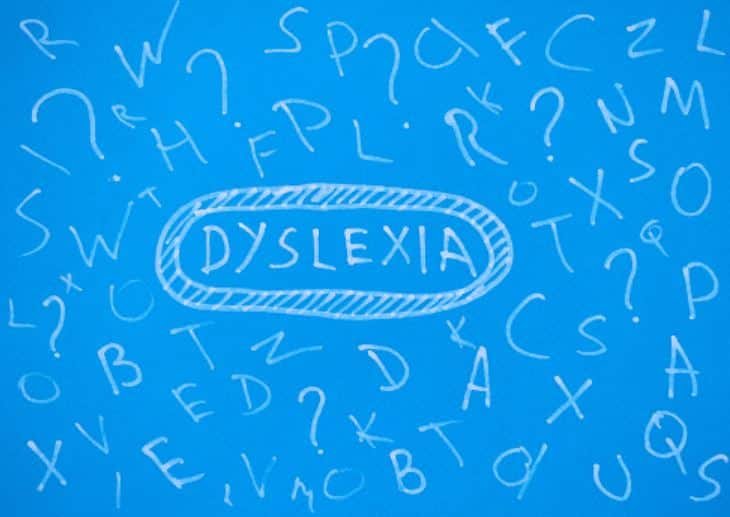Health
Common Dyslexia Symptoms By Age

Dyslexia, a neurobiological disability impacting the areas of the brain responsible for language processing, affects children and adults. The symptoms and severity of this learning disability vary with age and make it challenging to diagnose. Here is a breakdown of dyslexia symptoms from early childhood through adulthood.
[lwptoc]
Preschool Years
Signs of dyslexia may appear as early as one or two years old, as a child develops the ability to make sounds. Children who experience delays in speech are at an increased risk of dyslexia, as are those from a family with a history of difficulties with reading. Other warning signs of dyslexia that can display before age 5 include:
- difficulty learning the alphabet
- extended use of baby talk
- difficulty recognizing simple rhyming patterns
- inability to recognize their name in print
Early Elementary School Years
In kindergarten or first grade, as children begin learning to read, symptoms of dyslexia become more evident. There is not a specific test for dyslexia yet until the release of Tests of Dyslexia (TOD™), so a doctor’s involvement is necessary if concerning symptoms are recognized. A child in early elementary school with dyslexia may display difficulty with:
- breaking words into syllables
- changing sounds in words
- decoding words
- recalling letter names and sounds
- remembering the spelling of common words
- spelling phonetically
Learn more: Everything You Need To Know Regarding COVID-19 Symptoms in Kids
Later Childhood Years
Once a child passes the age of learning to read, the symptoms of dyslexia remain standard through the end of the high school years. Students in grades 2 through 12 may display the following difficulties:
- avoiding reading, particularly aloud
- confusing sound-alike words
- comprehending spoken material better than printed material
- experiencing fatigue and frustration with reading
- difficulty remembering details, such as dates and names
- guessing at unfamiliar words
- handwriting issues
- interjecting fillers into speech, like “um” and “uh”
- making extensive mistakes when reading
- reading slowly and painstakingly
- spelling words incorrectly
- using vague language, such as “things” and “stuff”
Adulthood
Some estimates say that up to 20% of the U.S. population currently has dyslexia. While individuals usually undergo assessment and receive a diagnosis at a young age, dyslexia is commonly undiagnosed. For adults who experienced difficulty reading as a child and still struggle, dyslexia is a likely culprit. Signs of dyslexia in adults can include:
- Avoiding reading for pleasure
- Declining to read out loud in public
- Difficulty summarizing material
- Difficulty understanding puns and jokes
- Difficulty with memorizing
- Issues with math
- Trouble managing time
Risk Factors
In addition to a working knowledge of the symptoms, understanding the risk factors for dyslexia is helpful. A family history of dyslexia (formally diagnosed or just suspected) increases an individual’s risk of developing it by about 20%. Males are more likely to experience dyslexia than females. Individuals with attention deficit hyperactivity disorder (ADHD) have a 5-19% greater chance of developing dyslexia. There is also some evidence that environmental factors, including low income, smoking by the birth parent, low literacy in the home, and psychological stress may contribute to dyslexia.
Learn more about dyslexia assessments and strategies for supporting students with learning disabilities from the shifted magazine.
Read more: The Most Common Phobias and When to Seek Help for Them
-

 Celebrity4 weeks ago
Celebrity4 weeks agoIs YNW Melly Out Of Jail? What Is The YNW Melly Release Date, Career, Early Life, And More
-

 Sports4 weeks ago
Sports4 weeks agoMore Than Just a Game: How College Sports Can Shape Your Future
-

 Tech3 weeks ago
Tech3 weeks agoAI Software: Transforming the Future of Technology
-

 Tech3 weeks ago
Tech3 weeks agoAll About Com. Dti. Folder Launcher: Features, Benefits, Tips, And More













